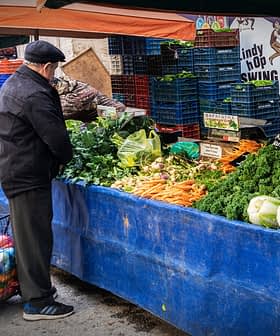Argentina’s president Cristina Fernández de Kirchner has pledged federal government help to the country’s battered olive oil industry following 200 layoffs in the Catamarca region amid rising costs, low crop yields, the low international price of oil and difficulties acquiring labor.

Catamarca Federal MP Dalmacio Mera announced that the aid will come in the form of both short-term help, so as to ensure the upcoming harvest takes place, and medium- and long-term help in order to sustain production in the province.
The announcement came after Mera met with the President to raise the concerns of the industry, a major source of income for the largely arid province, which in terms of agriculture relies on olives, wine, tobacco, nuts and corn. Catamarca is the largest producer of olives and olive oil in the country.
Mr. Mera said the president promised “immediate solutions to reverse the scenario and avoid further layoffs” and technicians have already begun to arrive in the province this week to integrate the government’s responses. He says the most pressing need will be some sort of subsidy that reduces the costs involved in the next olive season.
In order to alleviate olive workers’ fears of losing their social benefits while they perform seasonal work, they may also be included in a presidential decree that allows them to continue receiving the Universal Allowance per Child (AUH) while working on the harvest.
As for the medium to long term, the government has promised to cover varietal conversion of the olive species to those that give higher yield in order to help companies tighten the gap between profits and losses.
For these reasons, Catamarca’s provincial legislator Egle Altamirano hopes that the province will declare a state of emergency within the olive sector as soon as possible in order to activate the mechanisms that are being designed within the government and speed up help to the region. “The issue is not going to be solved until the decree comes out in the Province in relation to the declaration of emergency,” she told Catamarca’s Noa Press. “It is a first step that must be taken, and I think there is willingness in this regard.”
Early this year a state of emergency was declared in the nation’s olive oil sector in Pomán, a department within the Catamarca province, with companies involved in olive production being freed of paying municipal taxes and fees for six months. The move came after falling returns and redundancies across the sector largely due to the worldwide drop in olive oil prices and the requirement for varietal conversion to other species with higher yields, leading to fifty layoffs in two weeks.
At the time, Pomán’s Mayor Francisco Gordillo criticized the provincial and federal governments for their lack of a policy to address the situation, thereby worsening Argentina’s private employment situation. He said a support mechanism for olive oil production must be provided to avoid employers sacking their workers in order to try to meet costs.
Mr. Mera says the actions by the government will help the industry to continue to create jobs and development while also encouraging long-term investment in the industry and in the province and maintain Catamarca’s olive production profile.








